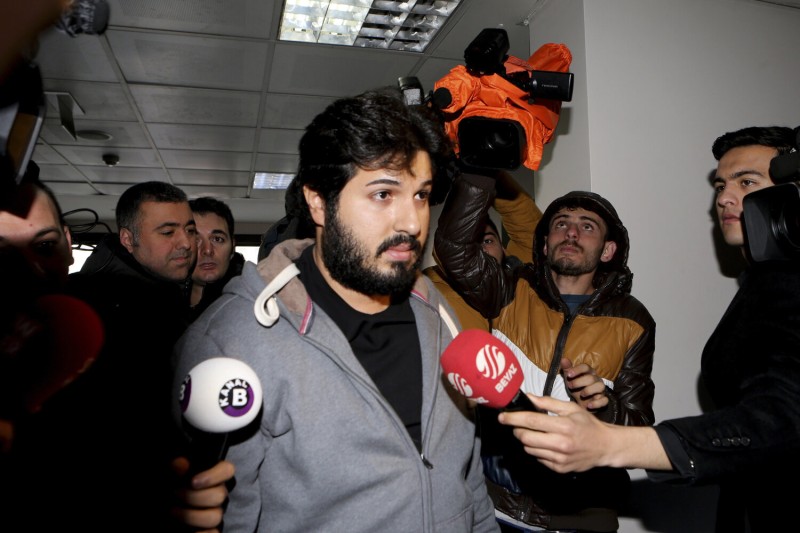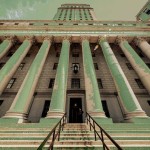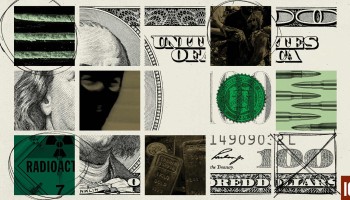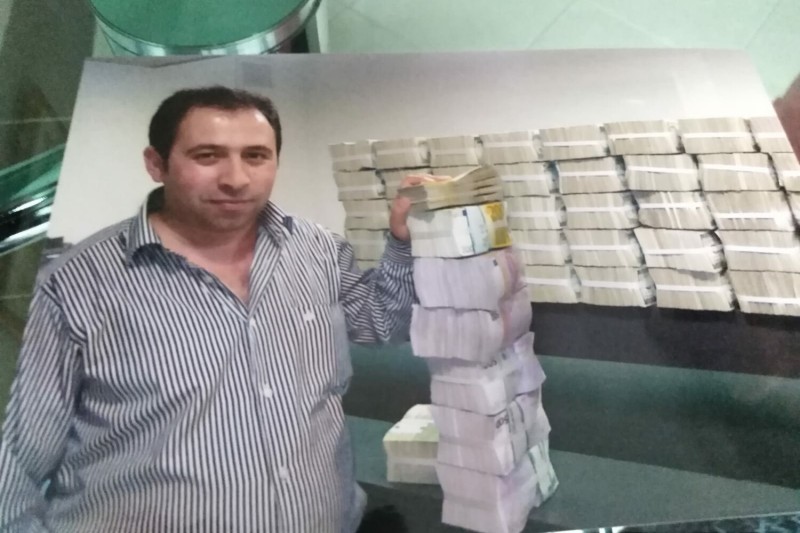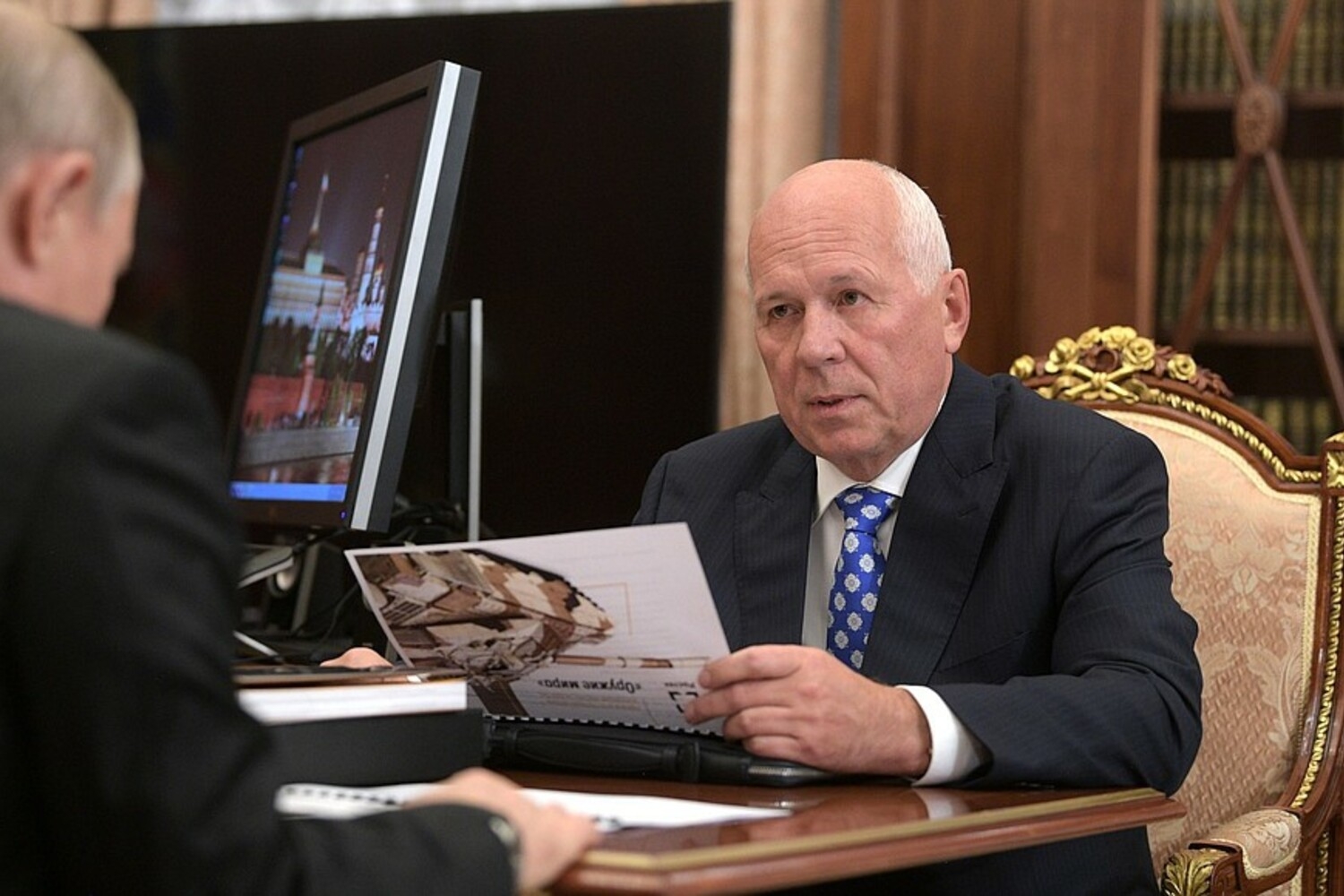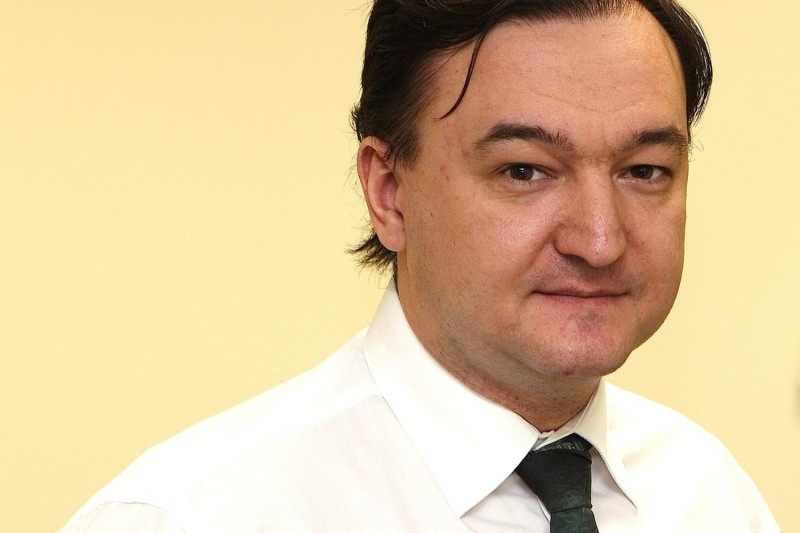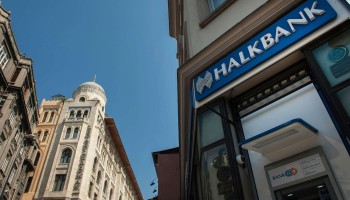Best known for laundering billions of dollars for Iran, notorious gold smuggler Reza Zarrab’s ties to Russia received only passing mention when he was prosecuted in the U.S. in 2016.
That was a huge oversight.
A new investigation by OCCRP and Courthouse News Service shows that Russia was central to Zarrab’s money network even before he began working for Iran. The lucrative business is evident in thousands of bank transfer records obtained by OCCRP and has been described in interviews by a Zarrab insider who says he smuggled millions of dollars to Russia.
Federal prosecutors from the Southern District of New York declined comment on this investigation.
Zarrab, while still in his early 20s, was the co-owner of Bella Investments Company LLC, a Dubai-based “investment company” that secretly handled around $1.25 billion in suspicious wire transactions involving Russian and offshore entities. Several transactions were tied to the massive tax fraud exposed by the late Russian whistleblower Sergei Magnitsky.
Bella Investments also received payments from offshore companies that have been linked to slave labor in Azerbaijan and petroleum illegally shipped to President Bashar al-Assad’s Syria.
Yet Bella Investments was scarcely mentioned when the U.S. prosecuted Zarrab and Mehmet Hakan Atilla, a senior executive at Turkey’s state-owned Halkbank, which facilitated Zarrab’s criminal scheme.
Investigators apparently knew about the company. Court papers show that when U.S. authorities seized Zarrab’s electronic devices in 2016, Bella Investments was used as a keyword search term. The FBI also asked the U.S. Treasury to search its records for Bella Investments a month after Zarrab’s arrest.
Bella Investments was also on a list of companies and people that was shown to prospective jurors who were told their names might come up in Atilla’s trial. It never did.
Under a new name and managed by Zarrab’s uncle and cousin, Bella Investments was still actively registered in Dubai two and a half years after Zarrab’s guilty plea in a U.S. district court. Three other companies bearing similar names, meanwhile, have been established by Zarrab’s relatives in Turkey, North Macedonia and Italy, showing the family’s money network extends into Europe.
About This Investigation
Using the U.S. Freedom of Information Act, OCCRP in 2019 obtained more than 750,000 bank transaction records, previously confidential communications and other documents that were the basis of the U.S. investigation and 2016 prosecution of Reza Zarrab.
Bella Investments' continued presence in Dubai highlights the Zarrab family’s ability to exploit the United Arab Emirates’ lax regulatory framework to move hundreds of millions of dollars — seemingly with few questions asked.
The wire transfer activity also involves Standard Chartered, the British multinational bank that U.S. officials labelled a “victim bank” and unwitting accomplice in Zarrab’s schemes. Documents show Bella Investments pushed millions in suspicious payments through an account at the British banking giant’s UAE branch.
A lot of it was suspicious money flowing from Russia.
The ‘Old System’
In 2008, Russia badly needed cash. Its central bank recorded net capital outflows of nearly $133.6 billion that year as a weak economy, falling oil prices, and ruble depreciation prompted unprecedented flight of cash from the country.
Much of that money was held by legitimate investors seeking more stable markets, but some ended up in the accounts of a Dubai-based company run by Zarrab, an obscure 25-year-old Turkish-Iranian money exchanger, and his partner, Ahmed Ali Hassan Taher, the Emirati owner of Dubai’s Al Azhar Money Exchange.
Companies controlled by Zarrab in Turkey would later pump tens of millions of dollars through Al Azhar, banking data obtained by OCCRP show. Al Azhar’s website no longer works, but an archived page from 2011 lists several Iranian banks, including Bank Mellat, which was sanctioned by the U.S. at the time. Unlike his former partner, Taher has not been charged or sanctioned by the U.S. Taher could not be reached for comment.
Established in May 2007, Bella Investments would over the next four years process some $1.25 billion in wire transfers from overseas companies in around two dozen countries. Around half came from Russia, mostly in 2008.
On paper, the wire transfers were justified as payments to Bella Investments for a wide range of goods, such as home appliances, dried fruit, securities, and textiles. Many were vaguely defined as “consumer goods” or “industrial equipment.” Often records referenced only a “contract” or “invoice,” or no purpose was stated at all.
In reality, the company was used to launder funds through numerous offshore bank accounts around the world.
Adem Karahan, a Zarrab insider who smuggled tens of millions of dollars in cash to Moscow and operated Turkish shell companies that wired funds to Bella Investments, said the company had no real business activity.
“Bella was set up for money transfer,” Karahan said in an exclusive interview. When asked if the company conducted any real commercial activity, he replied: “No, it didn't.”
Karahan gave OCCRP bank statements for Turkish shell companies that formally listed him as shareholder or authorized representative but he says were actually controlled by Zarrab. The statements show payments to Bella Investments.
In total, Karahan was involved in seven Zarrab shell companies. Asked if any had real commercial activity, he replied: “No, absolutely not.”
On the witness stand in U.S. District Court in 2017, Zarrab testified under oath that he never laundered Russian money.
“Isn’t it also true that you were involved in money laundering involving Russia prior to 2010?” asked an attorney representing the Halkbank executive, Atilla.
"No, that is not correct, ma’am," Zarrab responded.
“Wasn’t your chauffeur stopped at the border with $150 million in cash in connection with your dealings in Russia?” the attorney pressed. “Yes or no?”
“No, ma’am; that is not correct,” Zarrab said.
But Karahan said he and others routinely smuggled cash into Russia.
“Me and my friend took $4 million, after that $8 million," he said. “We went a lot to Russia.”
Karahan recalled as many as 20 journeys to Russia were made around 2009 and 2010, and shared Russian visas that confirm his travel there in 2010. He said that on one occasion he had to bribe officials who discovered the illicit cash.
“During that [trip] custom police stopped us at Sheremetyevo airport," he said. “We were questioned. In exchange with $1,000 they set us free.”
Karahan said other couriers who handled Russian cash included Yücel Özcil, a Turkish national who in 2017 was described in a U.S. court as Zarrab’s security guard. Özcil’s Facebook account shows photos of Moscow’s Red Square uploaded in September 2010, when the smuggling was taking place. Özcil did not respond to a request for comment.
Another associate was Vidadi Badalov, an Azerbaijani national who took delivery of the cash in Russia, Karahan said. Data obtained by OCCRP through the U.S. Freedom of Information Act shows that three Turkish companies formally registered to Badalov and Karahan wired more than $42 million to Bella Investments in 2010.
“Vidadi Badalov was Reza Zarrab’s man in Russia,” Karahan said. Badalov did not respond to a request for comment.
Karahan estimates as much as $300 million in cash was smuggled into Russia. Zarrab himself travelled to Russia in 2007 and 2010, according to passport stamps noted in U.S. court filings.
While financial records obtained by OCCRP only now show the true volume of Zarrab’s Russian business in the years before his arrest, the smuggling operation was revealed in 2013 by a leaked report believed to have been prepared by Turkish law enforcement investigating high-level bribery of government officials. The investigators described what they called Zarrab’s “Russia-based old system” for moving cash.
“In order to meet the Russian banks’ need for hot money, they’ve been transferring money through shell companies with commission through the [old] system they’ve developed,” they wrote.
“In order to take the monies earned abroad through unknown legal/illegal sources into Russia, they may be brought into our country from Dubai.”
The “Iran-oriented new system,” Turkish law enforcement said, involved laundering money for Iran.
Zarrab was arrested in Turkey in December 2013 in relation to alleged bribery to further money laundering linked to Iran. He later testified in the U.S. that he spent time in jail before bribing his way to freedom.
Huseyin Korkmaz, who led the 2013 investigation, testified in the U.S. that criminal charges were brought against him, and against another prosecutor and investigators who were probing alleged corruption by Turkish President Recep Tayyip Erdoğan, who was prime minister at the time, and by other ministers. Korkmaz said in court that he was reassigned and then jailed before fleeing Turkey.
Zarrab testified that Erdoğan was in on the scheme to help Iran evade sanctions.
‘Classic Red Flags’
Turkish police didn’t appear to know about Bella Investments and lacked access to the thousands of bank wire records that U.S. authorities later collected and used in prosecuting Zarrab and Atilla.
But documents and data obtained by OCCRP show that Turkish authorities were on the right track.
The “old system” appears to have relied on dozens of shell companies registered in Russia and in low-transparency jurisdictions, such as the British Virgin Islands, Belize and Seychelles. These companies over four years wired hundreds of millions of dollars to Bella Investments alone.
Most of the $1.25 billion was sent in 2008, with around half coming directly from the Russian bank accounts of Russian companies that were often created just months before the money transfer.
Bank records suggest these transfers were also justified as payment for a wide variety of goods, vaguely defined as consumer items, industrial equipment, home appliances, or fruit and vegetables. In some cases there was a reference to a contract or invoice with little or no further information.
Ross Delston, a U.S.-based anti-money laundering expert who trains financial professionals to detect suspicious activity, said banks’ compliance units should have questioned those transfers.
“The facts of this matter present classic red flags that banks are supposed to identify for potential money laundering or other financial crime," he said.
Delston noted that Bella Investments had only recently been formed, and was — on paper — dealing with a wide variety of goods, which is atypical for an investment company. Furthermore, funds were being transferred from “higher-risk offshore financial centers.”
“All of these are red flags, indicators of possible criminal activity,” Delston said.
The Russian companies included Investconsulting LLC, which was established in 2007 and shuttled more than $136 million to Bella Investments in the first half of 2008. Banking records say only that the money was for the “contract of sale of purchase of securities” and reference an apparent contract date.
Another Russian firm, Ariya LLC, was created in April 2008. It quickly initiated a series of wire transfers to Bella Investments totalling about $99 million over four months, ostensibly for “home appliances.” The money came from an account at Interregional Investment Bank, whose senior managers had been accused just months earlier of embezzling Russian state resources.
A member of the bank’s board of directors, Igor Kruglyakov, was described in Russian media as a long-term business associate of Sergei Chemezov, the powerful head of Rostec, Russia’s state defense conglomerate. Chemezov, who has been under U.S. sanctions since 2014, is a personal friend of Russian President Vladimir Putin from their days as KGB agents in Dresden in the 1980s. Rosoboronexport, a state-owned weapons exporter that Chemezov headed until late 2007, was a key client of Interregional Investment Bank that year.
One after another, newly established Russian companies wired tens of millions of dollars to Bella Investments’ Dubai bank accounts. Most funds went to banks in the UAE, including Standard Chartered’s Dubai branch.
Standard Chartered told OCCRP its information is restricted due to client confidentiality, and declined further comment for this article.
The firms included TD Medius LLC, which was established in November 2007 and sent $78.6 million over just four months in 2008. Investment Financial Company LLC, meanwhile, transferred $71.55 million between September 2007 and November 2008 referencing a “contract of sale and purchase of securities” and also dried fruit.
Monolitgruppplyus LLC, established in December 2007, sent nearly $34 million over two months in 2008. The funds came from an account with First Czech-Russian Bank, which was later shut down by Russia’s central bank in July 2016. The bank had a hole in its balance sheet worth several hundreds of millions of dollars.
The bank also gained notoriety for extending a 9.4 million euro ($12 million) loan to Marine le Pen’s right-wing Front National party in 2014 after traditional French banks reportedly refused credit, prompting accusations of Russian interference in European elections.
Bella Investments was also paid around $32.7 million “for goods” by two-month-old Spetsremstroy LLC beginning in September 2008. Another $20 million came from Megapolis LLC, ostensibly for home appliances, in March 2008, three months after the company was formed.
The Magnitsky Connection
At the same time, Bella Investments’ Dubai bank accounts were being flooded with hundreds of millions of dollars from shell companies in New Zealand, the Seychelles, Marshall Islands, Panama, Belize, and the British Virgin Islands (BVI).
Contracts for “foodstuff” or “trade equipment” were commonly used to justify the payments. In one case, a company registered in tropical Belize sent Bella Investments $26.37 million in regular payments for “clothes from fur.”
Such transactions “could be consistent with trade-based money laundering, using trade transactions as a cover for a flow of wire transfers that needs some sort of rationale, in essence a cover story for the bank’s consumption,” Delston said.
Several of the companies that transacted with Bella Investments were simultaneously making payments to shell companies closely tied to Russia’s notorious Magnitsky case.
The Magnitsky Affair
For example, Bella Investments received about $599,000 on March 26, 2008, from BVI-registered Seomest Development Inc. On the same day, Seomest wired more than $287,000 to another BVI firm, Protectron Company Inc., which sent nearly $636,000 on to U.K.-based Roberta Transit LLP.
OCCRP in 2016 revealed that Protectron and Roberta Transit were part of the Magnitsky fraud. Roberta Transit received a share of the stolen funds from two Moldovan shell firms via another company in February 2008.
In total, Seomest wired more than $31 million to Bella Investments between March and October 2008 with vague references like “for equipment,” “building equipment,” or “spare parts,” if any purpose was stated at all.
Beginning in April 2008, Bella Investments began receiving large transfers from BVI-registered Rotavest Global Inc., with most payments left unexplained and others labelled “for trade equipment.” The same month, Rotavest Global made two wire transfers to UK-registered Damac Limited.
OCCRP partner RISE Moldova in 2019 exposed a payment to Damac from an offshore company under investigation in the Magnitsky case.
Between April and October 2008, Rotavest wired more than $33.5 million to Bella Investments.
And in August 2009, Bella Investments sent over $24,000 directly to Itan Invest Corp., a Belize shell company identified in US court exhibits as having moved Magnitsky fraud money through a Lithuanian bank account.
Slave Labor, Sanctions, and Money Laundering
Many shell companies that have sent funds to Reza Zarrab’s Bella Investments have been involved in illicit financial schemes exposed by OCCRP and other international media – raising questions about the origin of the money processed by Zarrab’s firm.
While banking information obtained by OCCRP shows that a total of around $1.25 billion was wired to Bella Investments, reporters were able to confirm over $656 million in outgoing transfers. Much of that was sent to Asia Exchange Centre, a Dubai currency exchange owned by Emirati businessman Ali Omran Salim Al Owais.
The exchange, whose license was revoked by UAE’s central bank in 2013 reportedly for regulatory violations, also received hundreds of millions of dollars in wire transfers from Al Nafees Exchange LLC, a UAE company co-owned by Zarrab’s father and also named in Zarrab’s U.S. indictment. Owais, Asia Exchange Centre’s owner, declined comment for this article.
Delston, the anti-money laundering expert, said a UAE exchange adds another layer of obvious risk.
“These businesses can be major avenues for money laundering since they are typically more lightly regulated than banks and can have large inflows and outflows of funds throughout the globe in much the same way as banks but with less scrutiny,” Delston said. “This is another high-risk activity involving [Bella Investments].”
‘Major Improvements Needed Across the UAE’
The ease with which Zarrab moved hundreds of millions of dollars in suspicious funds through UAE-based Bella Investments can be explained by a recent report by the Financial Action Task Force (FATF), an international body that evaluates anti-money laundering measures.
‘Spreading Corruption on Earth’
Bella Investments, now called Rukn Al Mumtaz Investment Company LLC, was still active in April. Zarrab’s uncle, Ahad Khabbaz Tamimi, and cousin, Bahram Khabbaz Tamimi, took over 49 percent ownership of the company in 2013 and are its current directors, records show.
Zarrab’s relatives did not respond to a request for comment submitted through his counsel.
The other 51 percent is held by Mousa Daoud Mohamed Tahir Al Maazmi, the Emirati CEO of The Best Businessmen Services LLC, a company formation agent in UAE. Mousa Tahir did not respond to an emailed request for comment.
The Khabbaz Tamimis were also involved in Turkish businesses that Zarrab used to launder money. These included Royal Denizcilik, which issued fake invoices for shipments of food items to justify multi-million-dollar money transfers with Iran.
Zarrab has testified that the invoices masked phantom food shipments.
“None of the companies that I'm drawing on this diagram here would ever be involved in sending actual food because there was no actual trade out there,” Zarrab explained in U.S. District Court. “This was just an accessory in order to be able to carry out the money orders.”
Royal Denizcilik was also linked to suspicious payments from Russia, banking data shows. For example, Torgovyi Dom Promtsentr LLC, a Russian firm created in 2009, wired around $15 million to Royal Denizcilik in the last three months of 2010, ostensibly for “industrial equipment.” The same Russian firm also wired money to Bella Investments and two other Turkish shell firms controlled by Zarrab.
Karahan, the Turkish courier, recalled that Zarrab’s uncle was also responsible for arranging proxy shareholders for companies, a tactic commonly used to hide beneficial ownership.
“He was bringing partners from Iran and made me set up the company,” Karahan said.
Zarrab, the Khabbaz Tamimis and another cousin of Zarrab, Shahram Khabbaz Tamimi, were shareholders in Zafer Kuyumculuk, a Turkish jewelry company. Its authorized representative was Ertugrul Bozdogan, whom Karahan said accompanied Zarrab to a meeting with President Mahmoud Ahmadinejad in Tehran in 2011. Turkish law enforcement in 2013 said Bozdogan was a member of Zarrab’s criminal organisation.
After his arrest in 2016, Zarrab received a nearly nine-minute phone call from Ahad, who urged his nephew to deny guilt despite his desire to cooperate with prosecutors in return for a lighter sentence.
“You should not do that,” Ahad said, according to a translated transcript of their call. “What’s the difference between 10 and 20 years?”
“There is a huge difference between 10 and 11 years. Godspeed,” replied Zarrab. “Do you know what a year means to me?”
The Khabbaz Tamimis have operated multiple companies under variations of Bella Investment’s new name, Rukn Al Mumtaz Investment Company LLC, company registries show.
These include Turkey-registered Mümtaz Kuyumculuk, which was established in 2009 and still appears to be active this year. Banking data shows the company in 2010 and 2011 received more than $2.4 million in wire transfers from Gunes General Trading LLC and Al Nafees Exchange LLC — both named in Zarrab’s U.S. indictment. Mümtaz Kuyumculuk in 2011 paid $78,246 to Giordini SRL, an Italian luxury jeweller, banking data shows.
Other companies that have operated under the same brand are Mumtaz Investments in North Macedonia, and Italy-registered Momtaz SRL, a precious stones and metals company.
Their partner in Momtaz SRL was Vahid Mazloumin, an Iranian currency exchanger known as the “sultan of coins.”
Mazloumin was executed by the Iranian state in 2018 after being convicted of currency manipulation and “spreading corruption on earth.”
Jason Papakheli, Aparna Surendra, Eric Barrett, and Roshanak Taghavi contributed to this report.
